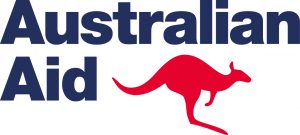Protecting Palestinian refugee communities in times of crisis
 Union Aid Abroad – APHEDA has supported the Palestinian Women’s Humanitarian Organisation (PWHO) on projects in Palestinian camps in Beirut since 1984. Back then, APHEDA worked on a project training nurses from the refugee camps in Lebanon. In recent years, APHEDA has been working with PWHO on a project to support the Palestinian refugee camp communities in Lebanon with quality access to early childhood education, support for children living with disabilities and education against gender violence and early marriage. Funds are from the Australian government and from Union Aid Abroad – APHEDA donors. Though the situation facing refugees living in the camps has always been a challenge, the past 12 months have been filled with fear and uncertainty. PWHO has had to contend with the COVID-19 pandemic, the impacts from the explosion in the Beirut port in August 2020, and the deep Lebanese financial and political crisis since August 2019.
Union Aid Abroad – APHEDA has supported the Palestinian Women’s Humanitarian Organisation (PWHO) on projects in Palestinian camps in Beirut since 1984. Back then, APHEDA worked on a project training nurses from the refugee camps in Lebanon. In recent years, APHEDA has been working with PWHO on a project to support the Palestinian refugee camp communities in Lebanon with quality access to early childhood education, support for children living with disabilities and education against gender violence and early marriage. Funds are from the Australian government and from Union Aid Abroad – APHEDA donors. Though the situation facing refugees living in the camps has always been a challenge, the past 12 months have been filled with fear and uncertainty. PWHO has had to contend with the COVID-19 pandemic, the impacts from the explosion in the Beirut port in August 2020, and the deep Lebanese financial and political crisis since August 2019.
Battling COVID-19 in cramped and crowded camp conditions
Since the outbreak of the pandemic, PWHO has been working hard to prevent the spread of Coronavirus and to protect those at risk of infection. This situation was exacerbated by the economic crisis and by the explosion in Beirut and the resulting food price hikes.
“In Lebanon, we are lurching from one disaster to another. There has been civil unrest, followed by the bad economic situation. Then the COVID-19 pandemic struck and now this explosion… Now even more people will lose their jobs.” Dr. Olfat Mahmoud, August 2020
Cuts to funding refugee health and education services via the United Nations Relief and Works Agency (UNRWA) by the Trump administration and allies, have made the situation worse. See petition.
As at 23 February 2021, Lebanon has recorded around 4,500 deaths from COVID-19. That’s 653 deaths per million of population (Australia is 35 per million of population). The number of cases of COVID-19 in the refugee camps is unknown, since access to testing in Lebanon is difficult. UNRWA estimates over 200 Palestinian refugees in Lebanon have died from COVID-19. A third of the staff in the early childhood education centre have been positive. People are living in very close overcrowded conditions. Hygiene supplies and masks are expensive. The lockdowns in Lebanon compound the problems, since most Palestinians can only work in casual jobs, so they lose incomes during the lockdowns.
Resilience in the face of crisis
Given the major disasters that have impacted PHWO in the past year, much of the project work has been re-directed to respond to the COVID-19 pandemic and also recovery from the Beirut explosion. From mid-2020, PWHO focused on protecting Palestinian refugees in the camps by distributing sanitation kits and raising awareness of the risks of COVID-19. Since the Beirut blast, PWHO have still been responding to the worsening COVID crisis while assisting with the basic survival of the camp communities who were no longer able to afford food and water. Amidst all of this, PWHO have worked harder than ever to support the women and the children in the project. Here are some of their impressive results:
- PWHO provided COVID 19 prevention education to parents of 100 children studying in the Burj el Barajneh and Shatilla camps through WhatsApp and Instagram.
- Early childhood teachers provided home education in mathematics, Arabic and English through WhatsApp to 100 pre-schoolers.
- In cooperation with other NGOs, PWHO staff provided COVID-19 information and temperature screening to people entering Burj el Barajneh camp at all 12 camp gates.
- 15 special needs children from Burj el Barajneh camp received video calls twice per week by 2 teachers to facilitate support and learning.
- 40 children with learning difficulties and their parents from Shatilla and Burj el Barajneh camps received assistance through WhatsApp and video teaching.
- 110 prevention and hygiene kits (USD $40 each) with soap, disinfectant and gloves were distributed to vulnerable households
In February 2021,PWHO has been providing food packages to the most vulnerable households.
Indirectly, all residents of the two camps, approx. 60,000 refugees, benefitted from the Covid-19 response activities of PWHO.
The founder of PWHO, Dr Olfat Mahmoud, who many in Australia know from her visits and book, is now sick with Covid-19, and being cared for in her home.
APHEDA supporters prove that in times of crisis, solidarity is powerful
Solutions for the crisis in Lebanon and the threat of COVID-19 are not imminent, but thanks to donations for the Coronavirus Solidarity Fund, the Big Ride for Palestine and the emergency appeal following the Beirut blast, we are able to continue to sustain PWHO’s vital work with vulnerable refugee communities into 2021.
Union Aid Abroad supports the Palestinian Women’s Health Organisation in partnership with the Australian Government through the Australian NGO Cooperation Program (ANCP).
